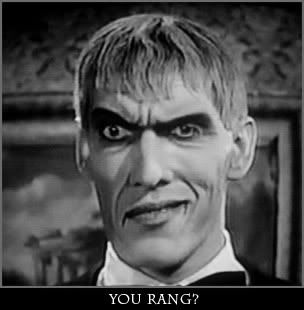Film Noir Buff
Distinguished Member
- Joined
- Jun 26, 2005
- Messages
- 6,113
- Reaction score
- 19
What is most interesting about the English sense of style for tailored clothes is that in theory it should be very simple and straightforward but in practice it is very complex. I have mentioned that there is a desire to be very different from one's neighbor but all within a very strict set of color and patterns. On the surface, the English seem to agree that it has a common language but when it comes to actual choices there is a lot of judgment about good and bad taste. This illustrates that every Englishman's style is relative and that though there is agreement that a national standard exists, no one really believes that anyone else represents it; not even their best clothing shops. The shops themselves often believe that other long standing English shops are not necessarily tastefully English and this is not only a matter of commercial competitiveness. I say this because many English shop workers or people in the business of manufacturing accessories have a different favorite shop where they themselves buy things which are their England and none other will do. For example someone working in a cufflink store will buy their shirts from a shop which to them is the only place on the island still making that "Traditional" English shirt. Another man who makes neckties or even weaves the silk for them will swear up and down by another shirt shop as the very "best" England has to offer. None of these men are lying and none of them is mistaken, they simply operate within their preferred part of the pond. Even the white rabbit had his waistcoat made in specific shop and he will believe it to be the best. Could it be any other way? Would you want someone to shop where he believes it to all be second best? Aside from their acknowledgment of the most abstract of common details, black shoes, darkest suits, bold or pale shirts and dark ties, the only people who can see the continuity of English style are outsiders who care to register it. For instance, the colors that the English all choose seem to be on the same part of the spectrum. The English cannot see that Turnbull, Harvie and Hudson, Duchamp and Paul Smith all share the same family of collar styles, tie weights, color combination. To them, each one of these shops is a polar opposite. I wanted people to understand that although outsiders would see little break in the continuity between the furnishings sold in the above mentioned shops, the English see a chasm. When it comes to clothes, the English see details that other cultures take for granted. This may be a little hard to follow and thus an example. Let's look at Harvie and Hudson. Ask one Englishman and it's a young person's store, ask another and it's a more mature store, ask yet another and it's City lad, yet another Englishman will tell you it's primarily for barristers, mandarins etc.. Even in the shop itself, the owner will pair certain shirts and ties with certain shirts which will be completely different from those his younger assistant (also well steeped in the Harvie philosophy) will choose. The owner will tell you his choices are traditional and the energetic assistant will be happy to admit his choices are "Mad", even unique but what they don't realize is they are all part of the maelstrom of English style which rages constantly but is nevertheless contained within the "tea cup" dimensions of the island. The English do admit that they're trying to impress each other and not outsiders. In Manhattan there is too much interference from different designers to produce a single universal style with a myriad of eccentric sub variants. In England, there is this atmosphere of a greater "us" but it is at odds with the need to be personally different, different enough to claim that any particular combination of shirt, suit and tie is not English even when they know deep down that it is in fact recognizable. However for the system in England to work, the details had to be settled for the eccentricity to begin. No doubt this explains standardization in items such as collar styles, tie lining thicknesses, cuts of suit. To stand out you must choose from the same ingredients table and show people what you can do with it. Americans haven't had that for a while, perhaps when the single voice of Esquire reigned supreme but not since the sexual revolution and the designers took hold. When the English know an item of clothes or a style combination is English there will be less of a fussy reaction (Even if they personally don't like it) vs. immediately refusing something as non-English. This is an involuntary response. In a similar way an American believing he is speaking to another American will catch that one trace of foreign accent that will forever change his viewpoint of the speaker as non American. Russel Crowe plays a city lad in the film "A Good Year" and on his way up an escalator he tells someone perfectly well dressed that he loves his tie, then adding the smart alleck remark "My compliments on your mother's taste". The concentric circles of style are small in England and keep narrowing until there exists a circle of one. Here is the man saying hello to Russel Crowe's character:
 And Mr. Crowe turning to give the man a verbal slap:
And Mr. Crowe turning to give the man a verbal slap:







